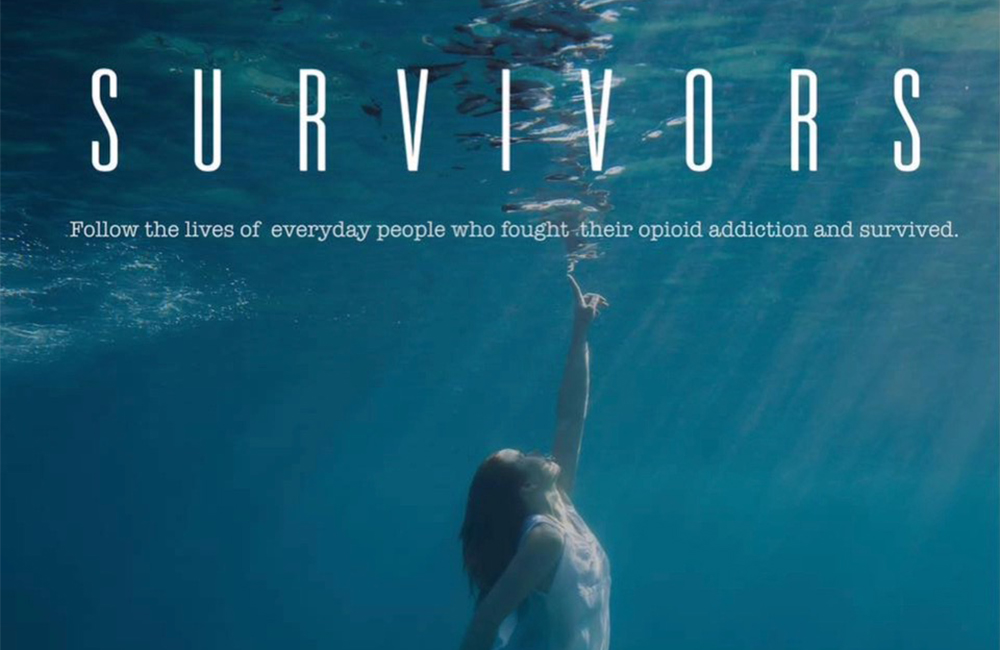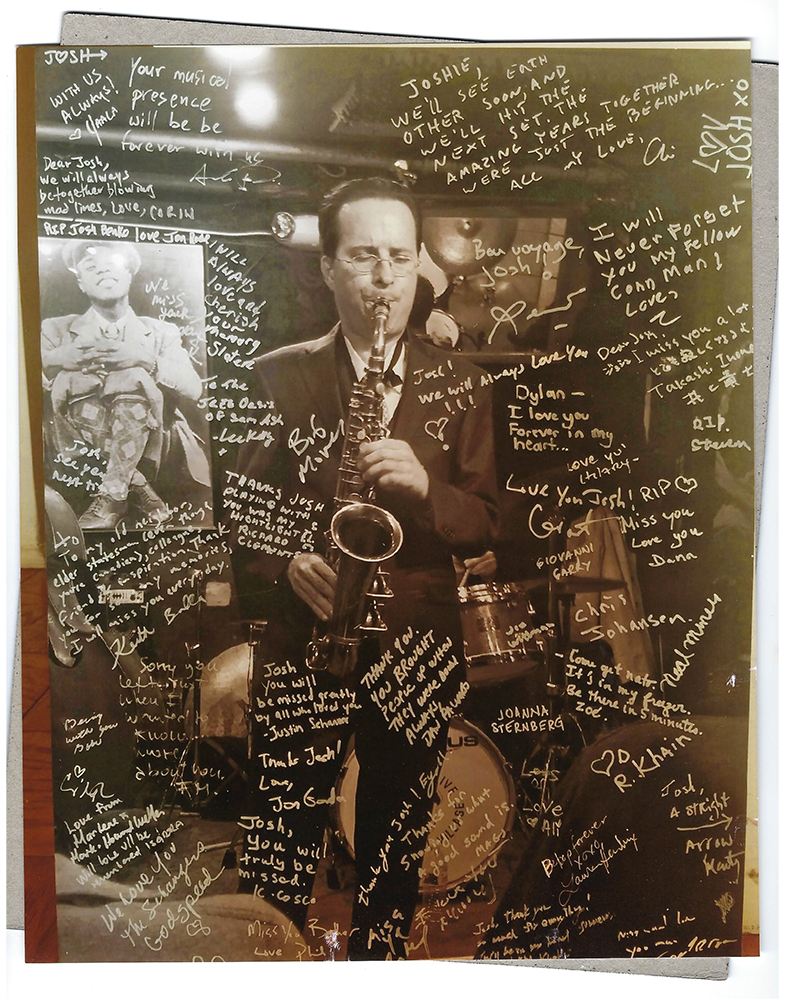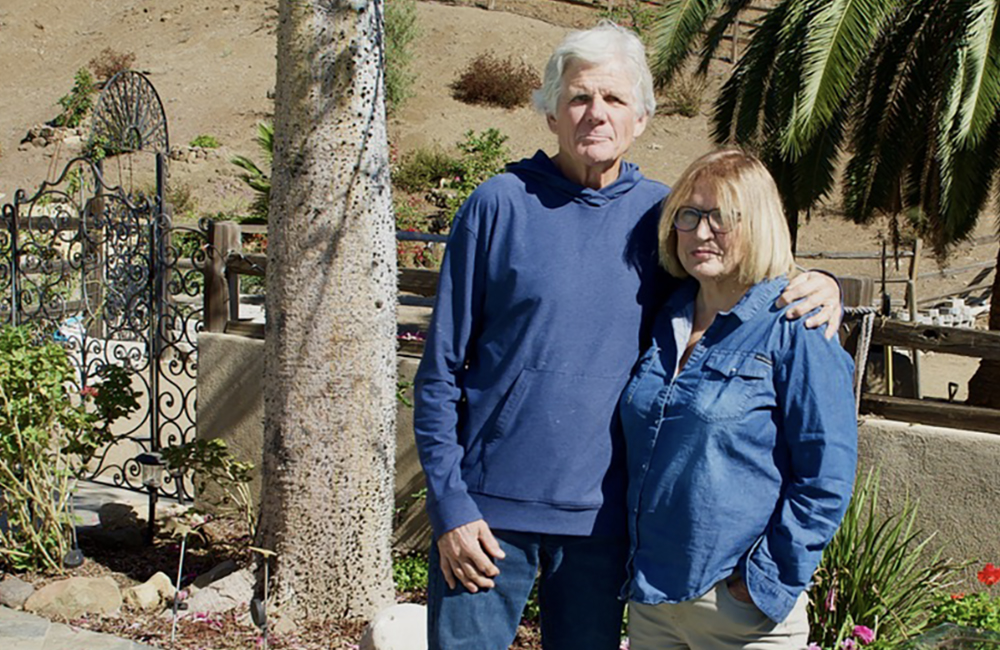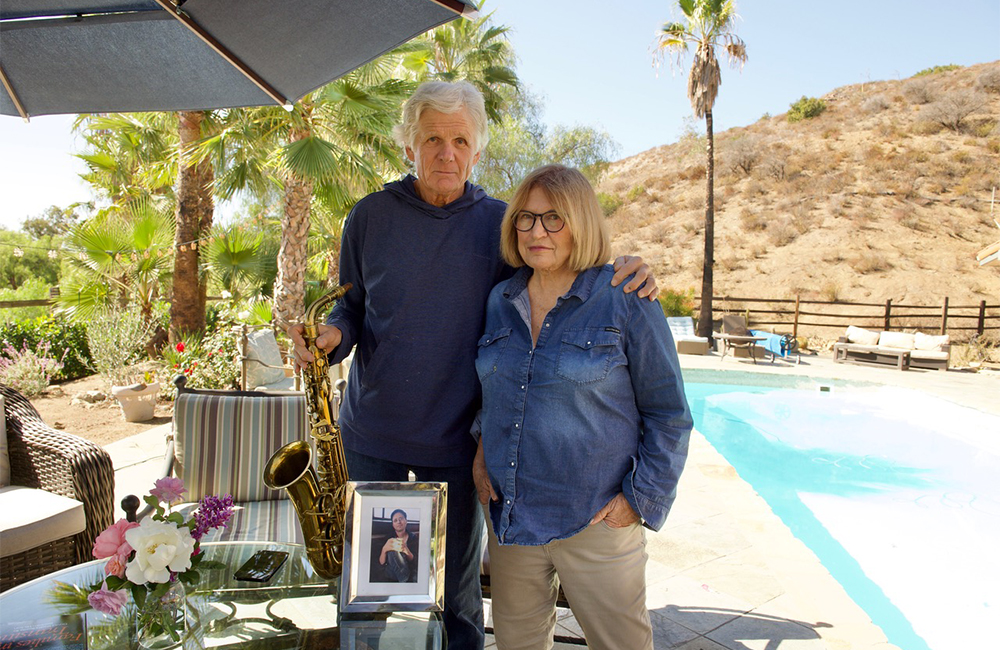Emmy-nominated film producer Kay Sumner channels her grief into her directorial debut, Survivors, a documentary featuring real stories of opioid recoveries and losses.

Kay Sumner thought drug addicts lived under bridges. She had no idea that her son, Josh Benko, an accomplished jazz musician in New York City, was living with an active addiction. “Even when he came out to visit us, we never knew,” says Sumner, who lives in Malibu, California. “I’d never known anyone that’s been involved in any of this. It was totally off my radar.”

Josh Benko was an accomplished jazz musician in New York City. He played the alto saxophone throughout the city and was known as one of the best repair technicians.
So Sumner was shocked when Benko’s ex-girlfriend told her about his heroin addiction. “Josh was never a bad kid,” she says. “He was never caught stealing. He was never late. I worked pretty hard as a producer. I came home one night, and he said: ‘Mom, I know you’re really tired. Can I make you dinner?’ And he made me a hot dog. He was really considerate and kind.”
Benko asked his mom to read In the Realm of Hungry Ghosts, a book by Gabor Maté based on his experience as a medical doctor and work with the severely addicted on skid row. “I read it and thought, ‘Oh, my god, this is terrifying,’” Sumner says. “I couldn’t finish it. But that’s the wake-up we need as parents.”
Benko died from an overdose Dec. 6, 2016, at the age of 43. He was at the height of his career.

Josh Benko died Dec. 6, 2016, at 43 years old. The Josh Benko Repair Fund at the Jazz Foundation raises funds to assist musicians with their instrument repairs in his honor.
So was Sumner. Sumner is a television and film producer who was the co-creator and co-producer for the television series The Dog Whisperer with Cesar Millan, for which she received Emmy Award nominations in 2006, 2007, and 2009. She and her husband, photographer and set director Murray Sumner, knew right away that they wanted to channel their grief into creating a film that would answer some of their questions about how their son’s addiction and overdose happened and how it could have been prevented as well as expose the destructive path that opioids can cause.

Jim and Kay Murray lost their son, jazz musician Josh Benko, to a heroin overdose in 2016. The film producers started the nonprofit Not One More Time, which creates film, print, and media educational content about the opioid crisis.
“We’re all, as parents, in such denial,” Kay says. “There is stuff parents got to know. They have to know what the signs are.”
The Sumners created a 54-minute documentary film Survivors, which details real opioid stories of recoveries and losses. You’ll meet Shayna, Debora, Lori, and others as they share their experiences with heroin and fentanyl and how they successfully overcame a potentially tragic outcome and rebuilt their lives, and you’ll start to learn what Kay and Murray discovered through interviewing survivors and making the film: Addiction does not discriminate.
“It made us aware of the fact that this can happen to anybody,” Murray says.
Adds Kay: “You think they hang out with bad people. It isn’t necessarily bad people. It’s so prevalent.”
The stigma of a heroin user suggests an addict is someone living on the streets, selfish, jobless, dirty, a threat, someone who comes from a broken home, had a bad upbringing. But the face of heroin in the U.S. is changing. The majority of addicts are just like Benko and span all demographics.
The change is, in part, because heroin is becoming more accessible and more people are abusing prescription painkillers, which are highly addictive opiates; getting addicted; and switching to heroin. One study found that 80% of heroin users reported using prescription pills before they started heroin. With prescription painkillers as a gateway drug to heroin, more white people — young, white men in particular — are using heroin and prescription painkillers simultaneously. In 2020, 91,799 people died in the United States from a drug overdose; 68,630 of those deaths were the result of opioids. Before the Sumners finished producing the documentary, they learned that one of the people they interviewed, Chris, had since relapsed and died of an overdose.
“We need to get rid of the shame,” Kay says. “As a parent, your first thought is, ‘I don’t want anyone to know that I failed.’ You have to say: ‘I don’t care. This is what happened.’ We have to deal with it because too many people are dying. We’re not getting a handle on it.”
The Sumners released the Survivors documentary on YouTube in September, and it has won awards at the Europe Independent Movie Festival, California Women’s Film Festival, and the Festival Napoleon on Champs Elysees in Paris. Their hope is that parents watch it and gain a better understanding of the largest epidemic in modern history that is hidden in plain sight.
“There’s a whole disconnect between what parents think and hope their kids are doing and what they’re actually doing,” Murray says.
In addition to the documentary, the couple created the nonprofit Not One More Time. Their mission is to produce more media and educational content that brings awareness and perspective to the drug abuse crisis. Their next project — with the help of three Emmy-nominated directors — are films directed at young people to prevent them from becoming ensnared in a cycle of addictive behavior. The films will each target different ages: 8-, 11-, and 13-year-olds.
“If it’s not speaking their language, the kids can brush it aside,” Kay says. “Our goal is to make something that will break through.”
Watch the documentary for free online, and learn more about Not One More Time and the work Kay and Murray are doing to raise awareness about the opioid crisis.




No responses yet